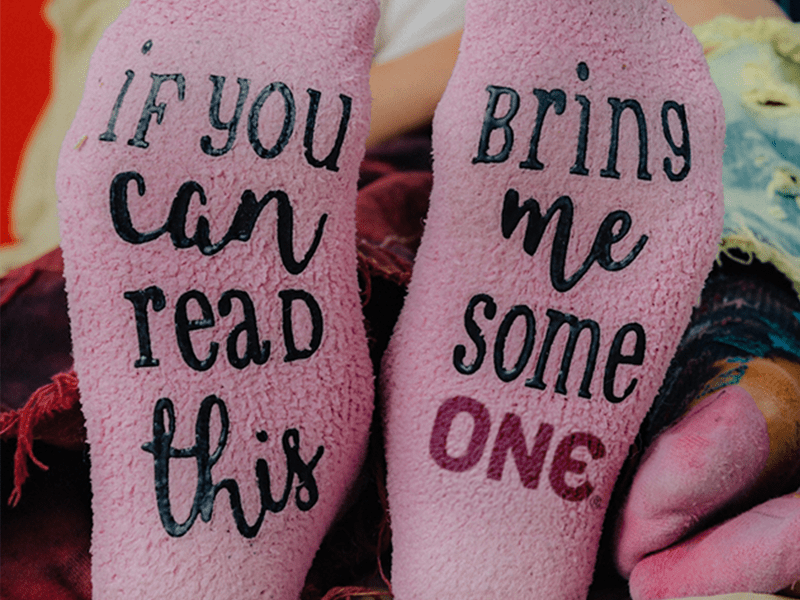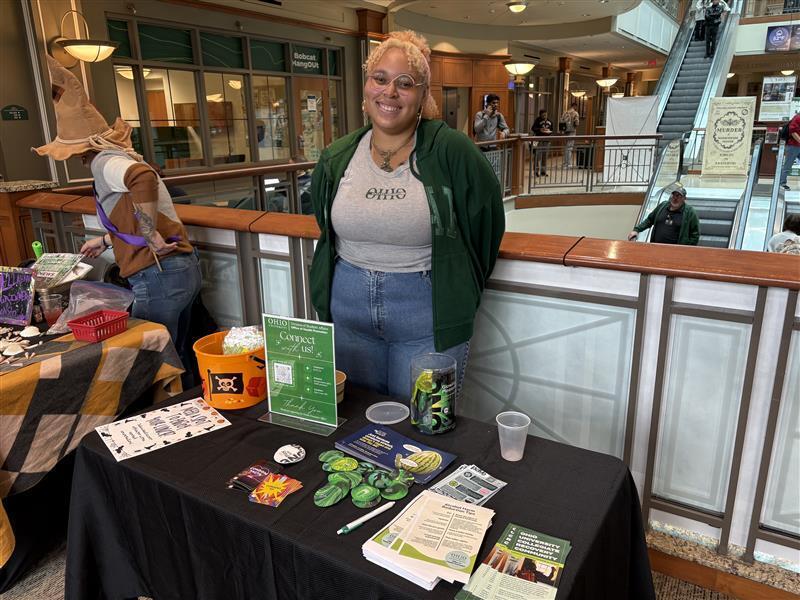If you’ve been following national and international news recently, the coverage around the monkeypox virus has been pretty grim. While the first case of the monkeypox virus was registered over fifty years ago, it hasn’t been seen on this scale ever in history. According to the latest trackers, more than 20,000 cases have been confirmed in more than 70 countries with a total death rate of 10 so far.
After initial reports of an outbreak in western Europe, infections have soared and the World Health Organization (WHO) declared a monkeypox to be a global public health emergency in late July. Various cities and governments have followed suit, and the United States currently has the highest count of confirmed cases with more than 5,300.
We at ONE® want to make sure you have the latest health information, as well as tips and tricks for how to protect yourself, your partner(s) and your loved ones.

What We Know About the Monkeypox Virus So Far
Let’s talk about the information we know to date from health experts.The signs and symptoms have varied based on global reports, which might include everything from:
- Fever, headache, body aches and chills
- Swollen lymph nodes
- Exhaustion and respiratory discomfort (sore throat, nasal congestion or cough).
But the signature symptom of this viral infection is a rash on or near the groin, and also hands, feet, chest, face or mouth. Depending on the part of the body the rash has infected, it may morph in appearance over time, ranging from pimples and blisters to skin lesions and scabs. There are also reports that the rash can travel from internal cavities like the vagina, rectum and/or throat outward. Here’s what you need to know about symptoms:
- Symptoms generally appear within three weeks of exposure and the telltale rash usually appears about one to four days following the flu-like systems
- Infection usually lasts somewhere between two to four weeks
- Regardless of the rash or other symptoms people may experience, monkeypox is highly transmittable from the start of symptoms until the rash has fully healed
What’s perhaps even more concerning is how easily the monkeypox virus can be spread, including:
- Close, skin to skin contact especially with areas affected by rash, especially broken skin (scabs, lesions, body fluids)
- Contact with objects (including sex toys, kink gear and accessories), fabrics (clothing, bedding or towels) and surfaces that have been used by someone with active monkeypox symptoms
Particularly high-risk activities include most forms of sexual and intimate activity, ranging from hugging, massage, kissing and prolonged face to face contact, to oral, anal and/or vaginal sex. You may have seen specific PSAs for the LGBTQ+ community in your area, and there is actually a rationale for this. The New England Journal of Medicine recently released a major study, and the most jarring takeaway was that monkeypox is overwhelmingly being driven by sex between men in these early stages of the outbreak.
What’s Ahead, According to the Experts
But monkeypox remains a threat for people of all ages and identities. In late July, the US confirmed two initial cases of monkeypox in children, both very young (an infant and a toddler). Pregnant people are also at significant risk, as they can spread the virus to their fetus through the nutrients and fluids flowing through the placenta.
Research continues into symptoms, transmission and prevention, and most governments with impacted residents are working to research, secure and distribute additional resources including vaccines.

What You Can Do to Protect Yourself, Your Partner(s) and Your Loved Ones
Speaking of, the good news is that two vaccines have been approved by the FDA (Food and Drug Administration) for the prevention of the monkeypox virus. One is known as JYNNEOS, Imvamune or Imvanex and was specifically designed as a monkeypox vaccine.
The second vaccine was actually originally designed to be a smallpox vaccine, known as ACAM2000, and is also FDA approved for its effectiveness against monkeypox. The one thing to note about ACAM2000 is that it is not recommended for certain populations who are at risk for a weakened immune system (could be those affected by conditions like eczema and other skin conditions or people who are pregnant).
Some early research also shows that vaccination within four days of exposure can also help prevent the viral infection, though this is still being studied.
Unfortunately, these vaccines are extremely limited and most localities are rationing the vaccines to populations that are most at-risk, especially men who have sex with men. As of late July, the vaccination eligibility is also very narrow:
- People who have been identified by public health officials as a contact of someone with monkeypox
- People who are aware that one of their sexual partners in the past two weeks has been diagnosed with monkeypox
- People who had multiple sexual partners in the past two weeks in an area with known monkeypox cases.

Think you may be eligible for a vaccine? Check out your local or state health department for opportunities to book appointments.
In the meantime, there are a number of easy steps you, your partner(s) and your loved ones can take to limit your risk of exposure.
- Avoid locations like saunas, bathhouses, gyms and other locations where people may regularly engage in anonymous or public sexual encounters
- Limit social interaction to “pods,” similar to the pandemic pods many formed, where only a few friends and loved ones should be socializing and sexually engaging together, monitoring symptoms and communicating
- This requires important communication around risk and recent activity, that can often be awkward or uncomfortable – check out some ideas on how to have those conversations here!
- Condom use can help reduce the risk of transmitting the monkeypox virus through skin to skin contact and direct contact with bodily fluids – more research needs to be done here, but you can always restock and check out our new premium condom products on our site
- Avoid skin to skin contact by wearing additional layers and social distancing from others, especially when in crowded public places
- If you experience initial symptoms (flu-like symptoms), immediately isolate until you can get tested and secure a prescription to TPOXX, which has proven to be an effective antiviral treatment
- Testing is actually pretty similar to COVID-19 testing, though your doctor, sexual health clinician or an urgent care health provider will swab a lesion and the lab will run a PCR test to determine presence of the virus’s genetic material
Want to stay updated on the latest news on the monkeypox virus? There are a lot of great resources, including the CDC site. Please stay safe and take care of each other!!
Sources:




Share:
ONE® Celebrates National Orgasm Day 2022 - Orgasm Facts You Should Know
What's Up With The Tip of A Condom